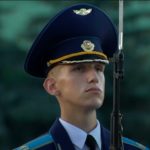It was eighty years ago, at about four after midnight, on a Sunday. A heavy shelling of Brest Fortress began. The place was attacked by German artillery and air force, soon surrounded by German troops, whose task it was to capture the stronghold within eight hours. Had not Belgian Fort Eben-Emael been taken within hours a year earlier? The Russians can’t be better than the Belgians, thought Hitler’s generals. Yet, Brest Fortress withheld the first, the second and many other assaults. It resisted the attacks even though the other German units had moved further east and were approaching Smolensk. It took Germans eight days to quell the obstinate resistance. Still, individual defenders remained in the recesses of the ruined fortress much longer and continued to pose a threat to the occupying forces. So it was. After the war a graffiti was found on one of the walls, reading: “I am dying, but I won’t surrender. Farewell, Motherland!”
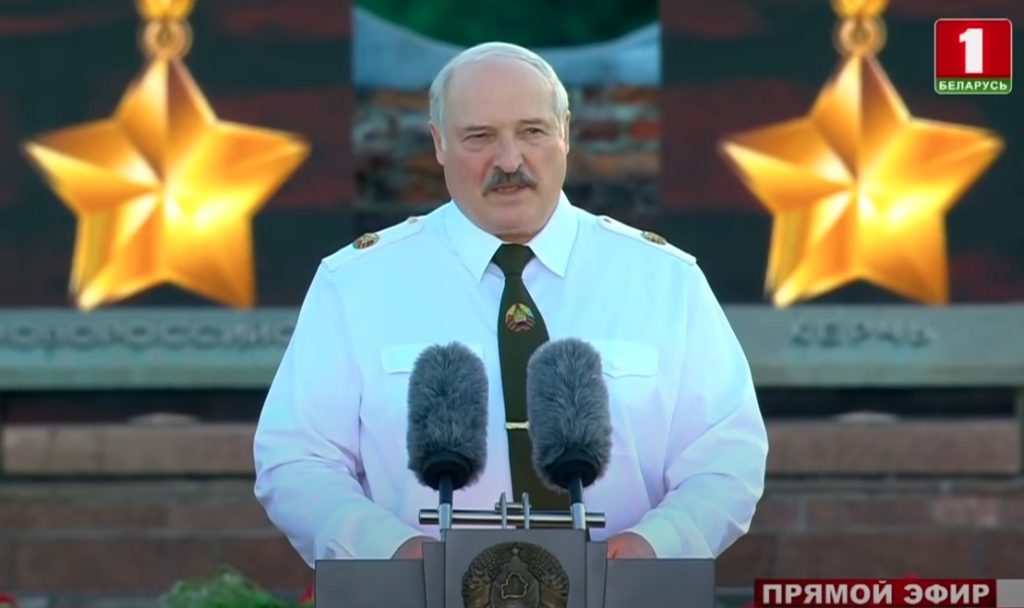
Alexander Lukashenko delivering a speech at Brest Fortress. Russian audio here.
Precisely these words were quoted in the televised speech delivered by Belorussian President Alexander Lukashenko and occasioned by the 80th anniversary of Germany’s attack on the Soviet Union, which opened the Great Patriotic War of the years 1941-1945, a war that is still vividly remembered and commemorated in Belarus and Russia. The president’s speech, impassioned as it was, was at the same time a strong political statement and an address not only to Belorussians but the Western world. During the approximately 20 minutes, Alexander Lukashenko recalled the blitzkrieg of 1941 and compared it directly with the “colour” blitzkrieg of 2021: just as in 1941 the whole of Europe pounced on the nations of the Soviet Union, so did the whole of the European Union charge against Belarus, with the difference being that this time it was the hybrid war rather than its hot equivalent. To add insult to injury, said Belorussian President, one German Minister Maas – as President Lukashenko condescendingly put it – imposed economic sanctions on Belarus precisely at night on 22 June. Was this symbolism intended? asked the President.
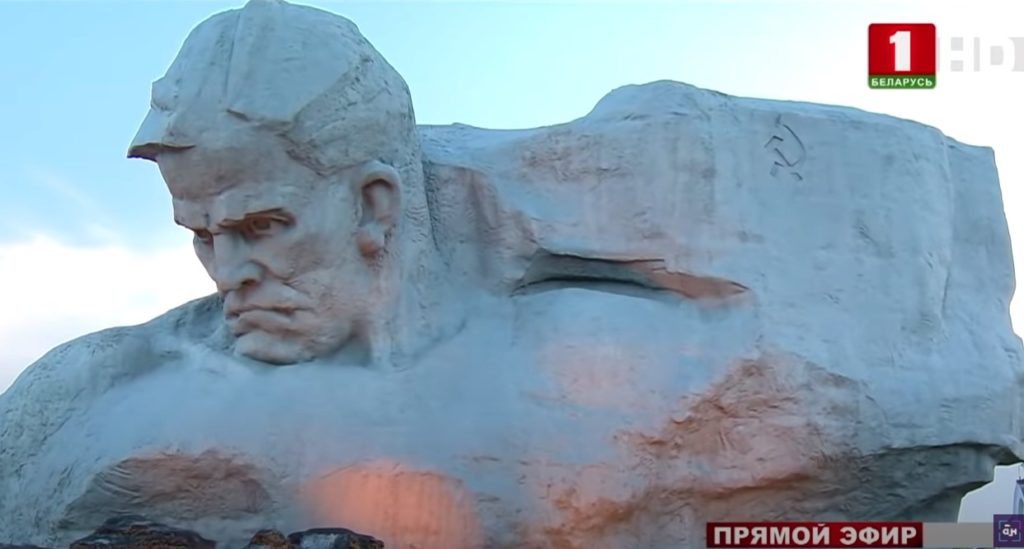
He gave his speech against the backdrop of a huge Russian soldier – or, to be precise, a huge stone head mounted on powerful stone shoulders of a 1941 defender of Brest Fortress – whose stern countenance of a formidable warrior lent gravity to the President’s words. Can it be – continued the President – that history taught them no lesson? Is the German minister – asked Alexander Lukashenko – acting in his capacity as an heir to the Nazis or as an apologizing German? Have the Germans forgotten what harm they did to the many nations of Europe? Have they forgotten how often they have apologized, shed tears, went down on their knees ever since?
Every third Belarusian lost his life in between 1941-1945, reminded the President. For this, the Germans should continue to apologize on their knees for a further 100 years, said the Alexander Lukashenko. Belarusians keep asking him, said the President, whether they should brace themselves for another war, and his answer is: Belarus is already at war, a war fought with different means, a war unleashed by the collective West. The citizens of Belarus, he said, once again withstood the attack and proved to be even more tenacious than their forefathers of 1941.
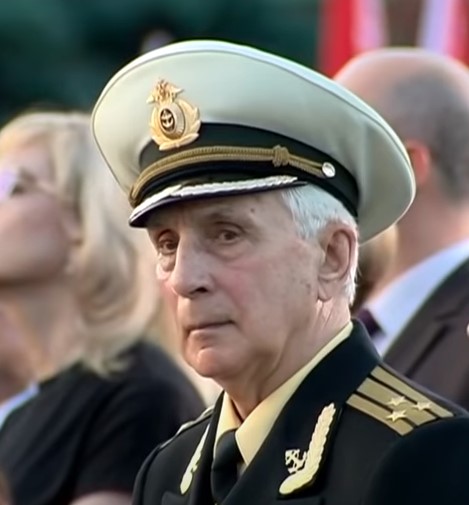
Then Alexander Lukashenko addressed the nations – the common people – of the states bordering on Belarus: of Poland, Lithuania, Latvia and Ukraine and asked them if they wanted to sacrifice their peaceful life because of the ambitions of their political leaders who keep pressurizing Belarus. Whatever course the events will take, continued the President, Belarusians will not live on their knees, Belarusians will defend their country because its their right, because they have always done so, because those who died defending Brest Fortress in 1941 are watching the living from on high. Then a few harsh followed: Belarusians will not once again, naively fall prey to mendacious – to put it mildly – or rogue NATO states.
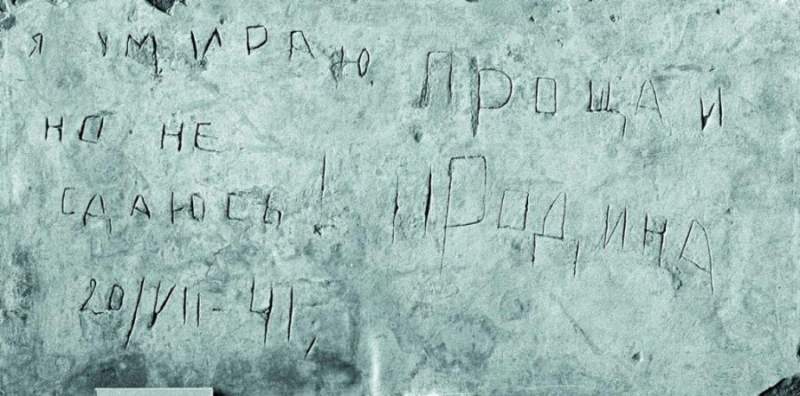
Я умираю, но не сдаюсь. Прощай, Родина! / I am dying, but I won’t surrender. Farewell, Motherland!
Alexandr Lukashenko appealed to Poles, Lithuanians, Latvians and Tartars living in Belarus to view this country as their home, to abandon futile hopes of perceiving themselves as welcome guests in the West. Some tried, said the President, e.g. applying for a Karta Polaka (a document issued by Warsaw for people of Polish descent living abroad, enabling them a legal stay in Poland and making it easier for them to acquire Polish citizenship), and very soon learnt the hard way its genuine worth.
The speech is well worth listening to. A vivid, clear message of a nation’s determination to stand on its own feet, to throw down the gauntlet to the powerful Western states. A message that draws on collective historical experience, historical memory. A message that inspires and cements the nation. Compare it to any of the speeches delivered by any of the Western leaders: bland, dull, and drab. Consider visiting Fort Eben-Emael and look for a monument put up there to honour its defenders. Compare. You might also want find a patriotic graffiti there. Try it.
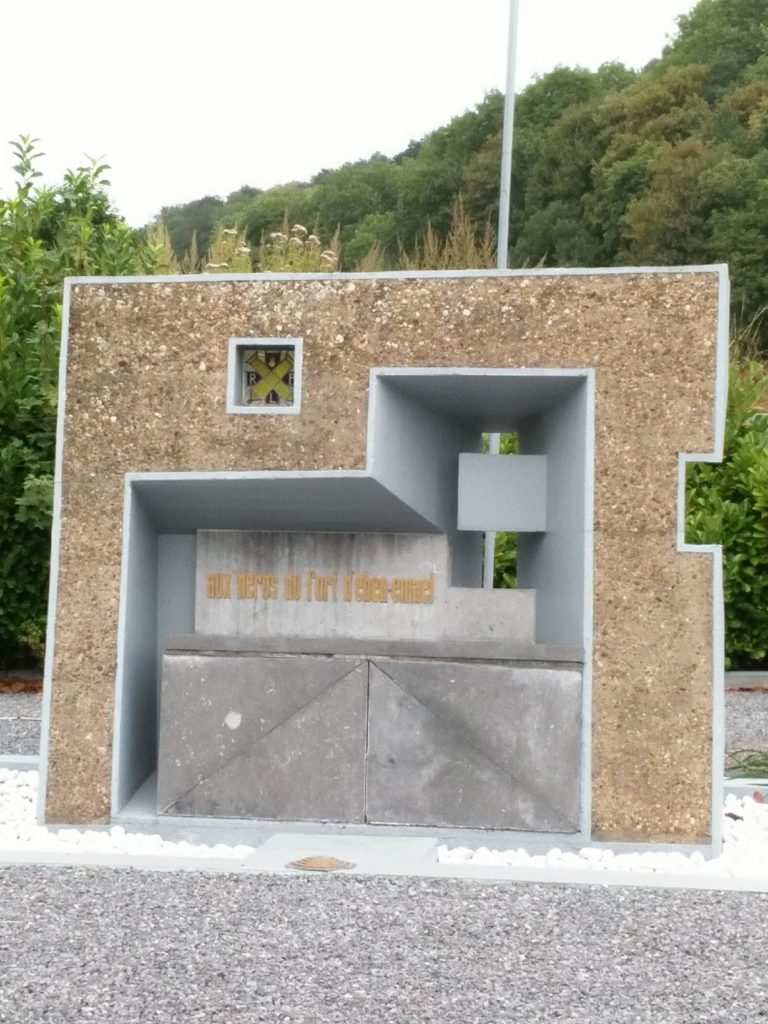
Monument to the Heroes at Eben-Emael

